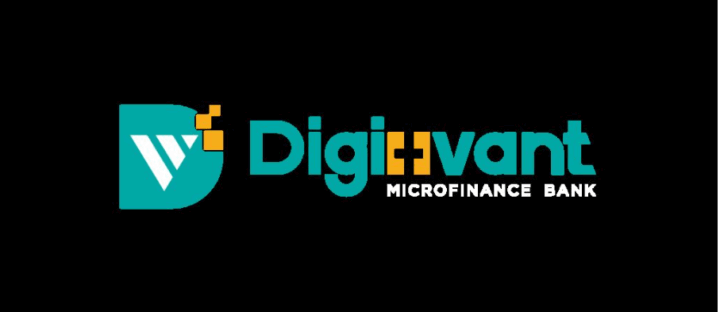Digitvant, a leading digital lending firm in Nigeria, has announced that it has successfully disbursed loans to more than 50,000 small and medium enterprises (SMEs) across the nation. The move underscores the company’s rapid expansion and commitment to addressing financing gaps in the informal and micro-enterprise segment.
Since launching its lending platform in mid-2023, Digitvant has targeted businesses typically underserved by traditional banks—traders, tailors, local manufacturers, and service providers—offering quick credit through a mobile-based application. Borrowers can apply in minutes, receive instant decisions, and get funds transferred directly into their mobile wallets or bank accounts, provided they meet minimal documentation requirements.

Digitvant’s Chief Executive Officer, Ms. Adetola Akinbiyi, explained that the firm’s mission is to close the credit access divide for micro and small businesses that struggle to qualify for conventional loans. “By March 2025, we had approved over 50,000 SMEs for loans, distributing a total portfolio exceeding ₦10 billion,” she said. “These funds have been used to expand operations, purchase goods, hire workers, and streamline supply chains.”
The bulk of recipients are women-led or youth-led microbusinesses operating in urban and peri-urban centres. Digitvant’s credit model uses alternative data —such as mobile phone usage, airtime recharge history, and point-of-sale transaction patterns—to assess creditworthiness in real time. This allows rapid and scalable lending to clients who lack formal credit histories.
Credit repayment rates remain strong, with current data showing a portfolio delinquency ratio of just 4 percent—well under the industry average for unsecured microloans. According to Digitvant, this performance is attributed to the company’s geotagged loan tracking system, SMS reminders, and access to financial literacy modules embedded in its app.
Financial inclusion experts have applauded Digitvant’s results, noting that quicker and more affordable access to credit can stimulate entrepreneurial activity and boost local economies. “Innovative lenders such as Digitvant fill critical gaps left by commercial banks, especially for traders in markets and small shops,” said Dr. Funke Awodun, Director at the Centre for Inclusive Finance. “By empowering tens of thousands of micro-entrepreneurs, they are directly supporting income generation, job creation, and improved livelihoods.”
Digitvant also offers bundled services to borrowers, including optional insurance for goods-in-transit, digital bookkeeping, and marketplace visibility tools. These add-on features help businesses mitigate risks and broaden their customer reach. Many clients have later subscribed to optional modules enhancing their financial management capabilities.
The company has actively partnered with trade associations and local chambers to reach communities beyond major cities. Target regions include Lagos, Kano, Ibadan, Port Harcourt, and emerging commercial clusters like Benin City and Ilorin. Field agents conduct outreach, enroll eligible applicants, and support clients to navigate the digital onboarding process.
Despite promising growth, Digitvant faces challenges including rising operational costs, competition from other fintech lenders, and regulatory uncertainty around interest rate caps for microcredit. Experts warn that maintaining sustainable credit terms and ensuring affordability will be vital for long-term impact. The Central Bank of Nigeria’s evolving fintech regulatory framework also poses compliance demands that adapted lenders must meet.
To deepen its footprint, Digitvant plans to expand credit access through partnerships with microfinance banks and rural savings cooperatives. It also intends to introduce group-loan offerings tailored for market traders and artisan clusters, where collective liability and peer oversight can further reduce default risk.
Looking ahead, Digitvant is exploring an entry into asset financing aimed at clients in agri-business, logistics, and creative services. These longer-tenor loans would provide equipment leasing, working capital for bulk procurement, or funding for digital transformation—extending beyond short-term working capital cycles.
The firm is also working on launching a Spanish version of their mobile app to support growing trade in border towns with French-speaking neighbours and to explore cross-border lending opportunities in West Africa.
Experts say that if Digitvant can maintain its repayment performance while scaling at pace, it could serve as a model for responsible fintech lending in emerging markets. Results so far suggest tangible economic ripple effects: job retention, increased trade volumes, and enhanced business innovation among previously credit‑ constrained entrepreneurs.
In conclusion, by disbursing loans to over 50,000 small enterprises and deploying an efficient, data-driven lending model, Digitvant is emerging as a significant enabler of microeconomic empowerment. Its success highlights the transformational potential of fintech in expanding access to finance, supporting local businesses, and strengthening Nigeria’s grassroots economy.
Support InfoStride News' Credible Journalism: Only credible journalism can guarantee a fair, accountable and transparent society, including democracy and government. It involves a lot of efforts and money. We need your support. Click here to Donate
